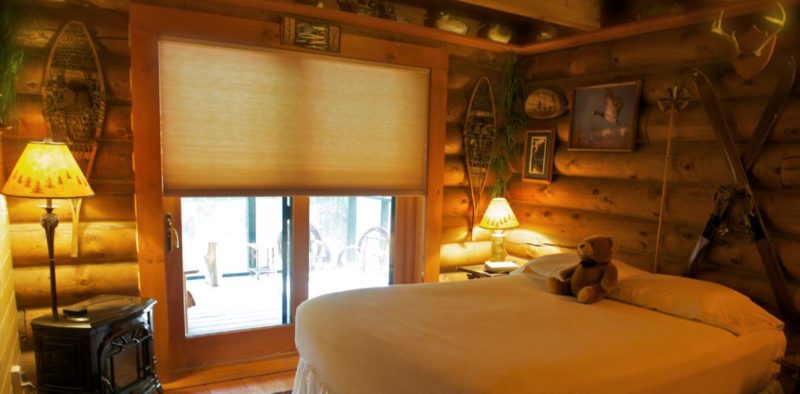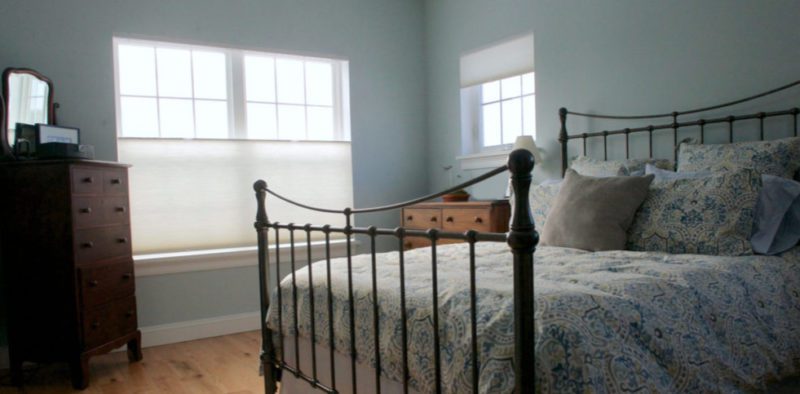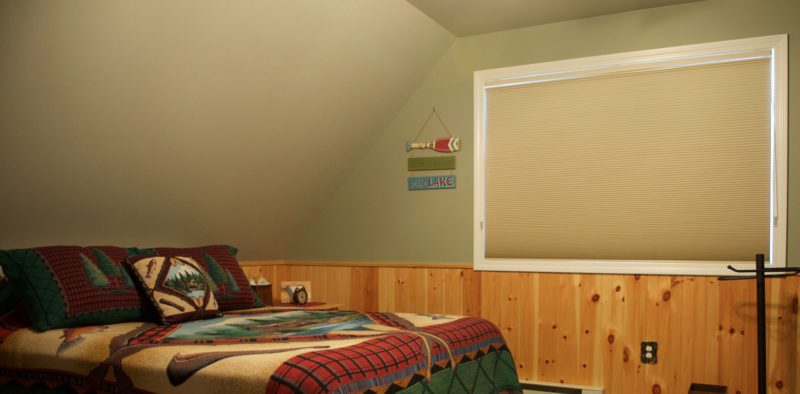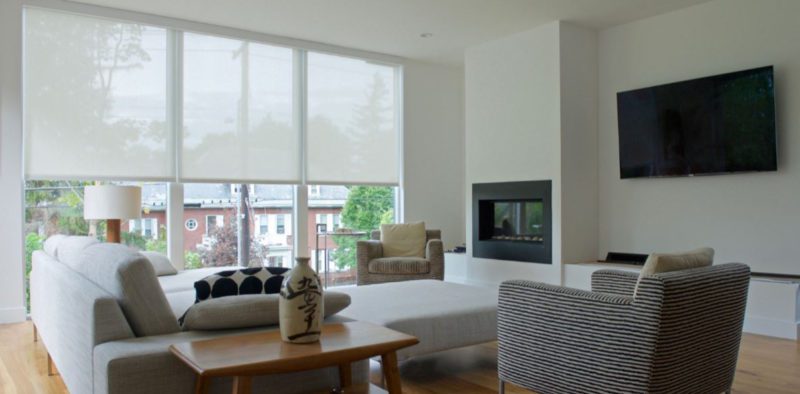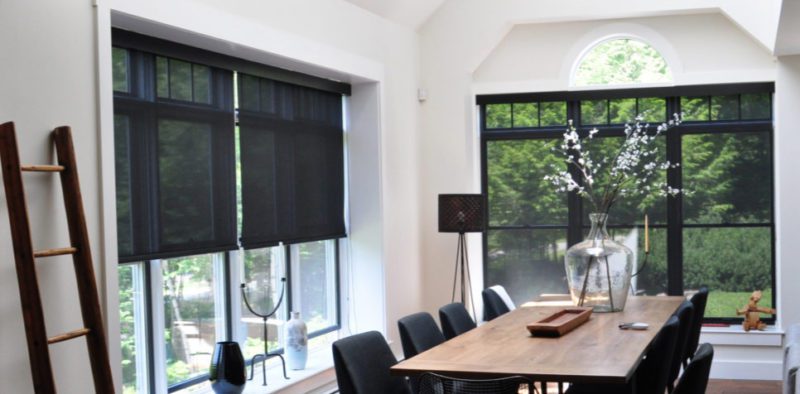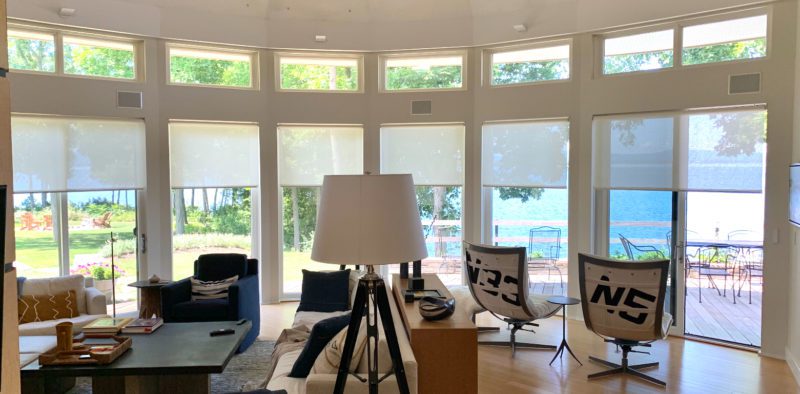When shopping for shades, it’s easy to feel overwhelmed by the number of options available. You might find yourself asking questions like, “how do you choose the right style for your home?” Or, just as importantly, who can you trust to deliver quality shades—and are they something you can install yourself?
Today, we’ll be diving into two of our most popular styles of shade: roller shades vs cellular shades, to make it easier for you to determine which style is best for your home. Let’s get into it:
Comparing Roller Shades vs Cellular Shades.
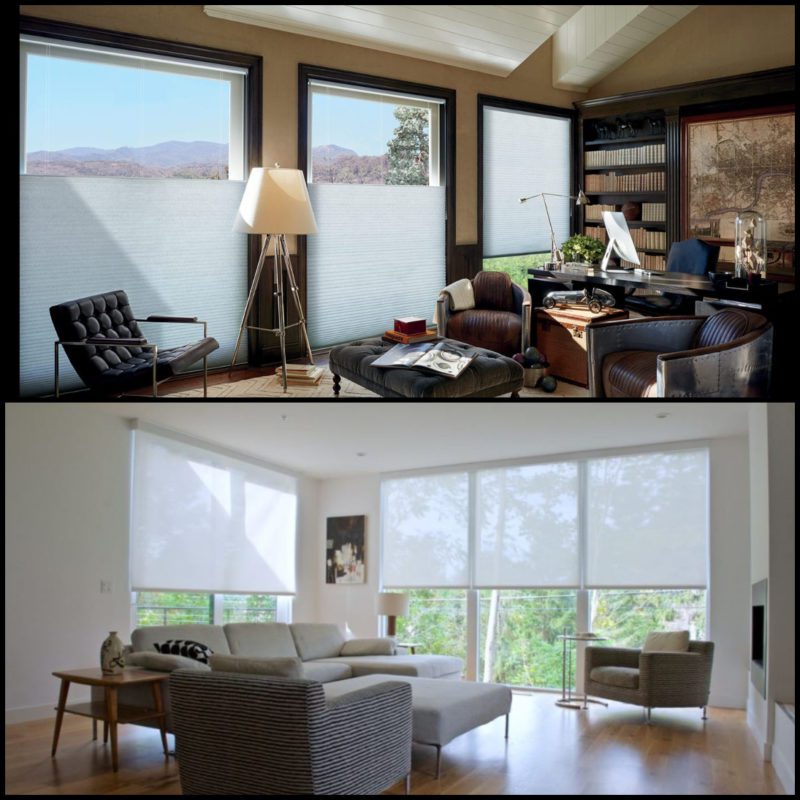
Cellular Shades
Known for their superior insulation, cellular shades feature a honeycomb structure that creates air pockets, acting as a barrier between your home and the outside elements. This design helps maintain your home’s temperature, reducing energy costs as if by magic. In addition to their energy efficiency, cellular shades block harmful UV rays while softening harsh sunlight into a warm, ambient glow.
Roller Shades
True to their name, roller shades operate by rolling up or down on a tube, allowing you to easily control light and privacy. They offer a minimalist, modern aesthetic while preserving your views. Roller shades are not only economical and durable but also effective in reducing glare, making them a practical choice for any space.
Energy Efficiency & Insulation Performance
One of the biggest differences between roller shades and cellular shades is in how they perform when it comes to insulation. Cellular shades are specifically designed with small air pockets that trap air at the window, creating a thermal barrier. This structure significantly improves insulation, reaching R-values between 3.5 and 5.0.
For comparison, standard double-pane windows typically measure around R-2, while roller shades often sit closer to 0.9 to 1.5. By helping to keep warmth inside during cold months and block outdoor heat during hot weather, they are among the most energy-efficient window treatments available. At EcoSmart, we’re committed to using only the very best insulating cellular fabrics available. You can learn more about our cellular shades and insulation here.
Roller shades provide less insulation because they consist of a single layer of fabric. While their R-values are lower, they can still contribute to comfort in other ways. Solar and blackout fabrics offer excellent glare control and UV protection, which helps reduce fading of furniture and flooring over time. Mounting roller shades outside the window frame can also help minimize light gaps and slightly improve performance. For homeowners in mild climates, or for rooms where insulation is less of a concern, roller shades may still be a practical and stylish choice.
At the end of the day, if energy efficiency and lowering heating and cooling bills are your top priorities, cellular shades are the clear winner. But if your focus is on design flexibility, light filtering, or a streamlined modern look, roller shades may offer the right balance of function and style.
Deciding Between Roller Shades vs Cellular Shades
Choosing between roller shades and cellular shades can be a tough decision, as they each offer distinct benefits to your space. Ultimately, the choice comes down to your personal style and practical needs. Roller shades are perfect for those who appreciate simplicity, affordability, and a sleek, modern design. They’re ideal for preserving your view while reducing glare.
Cellular shades, on the other hand, are the go-to option for energy efficiency and insulation, offering a range of color and fabric options to complement any room in your home.
How to Choose: Roller Shades vs Cellular Shades
When deciding on roller shades vs. cellular shades, start by thinking about your priorities. Since different households have very different needs, we created the following decision guide to help you figure out which option makes sense:
1. Is energy efficiency a top priority?
-
Yes → Cellular shades are designed with honeycomb cells that trap air and act as insulation. They’re one of the most energy-efficient window treatments on the market.
-
Not really → Roller shades may be sufficient if you value simplicity and a lower upfront cost over insulation.
2. How important is light control?
-
I want total blackout options → Both shades offer blackout fabrics, but cellular shades often seal tighter at the edges for less light leakage.
-
I want filtered natural light → Roller shades excel here, with sheer and solar fabrics that soften sunlight without darkening the room.
3. Do you live in a climate with hot summers or cold winters?
-
Yes → Cellular shades will help regulate indoor temperature year-round.
-
Mild climate → Roller shades may be perfectly adequate.
At the end of the day, it comes down to balancing budget, design, and performance. Many homeowners even combine the two, with roller shades in common living spaces for style, and cellular shades in bedrooms or draft-prone areas for comfort.
Cellular Shade FAQs
What is the lifespan of a cellular shade?
The lifespan of a cellular shade typically ranges from 5 to 7 years, depending on the quality of the shade, usage, and maintenance. High-quality shades with proper care can last even longer.
For more on the lifespan of cellular shades, check out our blog post dedicated to the topic.
What is the difference between cellular shades and honeycomb shades?
Cellular shades and honeycomb shades are essentially the same. Both terms refer to window coverings designed with a unique honeycomb structure that traps air, providing excellent insulation throughout the heat of summer and the cold winter months. Some manufacturers may use different terms, but the functionality remains the same.
Do cellular shades really save energy?
Yes, cellular shades are known for their energy-saving benefits. Their honeycomb design creates air pockets that act as insulation, helping to keep your home warm in the winter and cool in the summer. This can reduce energy usage and lower heating and cooling costs throughout the year.
For more on the insulating properties of cellular shades, check out our page dedicated to the subject.
Roller Shade FAQs
What is the lifespan of a roller shade?
Roller shades typically last around 7 to 10 years with proper maintenance. Their durability depends on the materials used and how often they’re operated.
How do you maintain roller shades?
To maintain roller shades, regularly dust them with a soft cloth or a vacuum with a brush attachment. For stains or deeper cleaning, a damp cloth with mild soap can be used, but avoid harsh chemicals that could damage the fabric.
Are roller shades hard to clean?
No, roller shades are easy to clean. Most dust and dirt can be wiped away with a cloth. For tougher stains, spot cleaning with a mild detergent usually does the trick. Their simple design makes them low-maintenance compared to more intricate window coverings.
Both roller and cellular shades are excellent choices for your home or office, and the best decision depends on your specific needs and preferences. If you’re still undecided, our Shade Gurus are just a phone call away and can provide advice tailored to your space.

